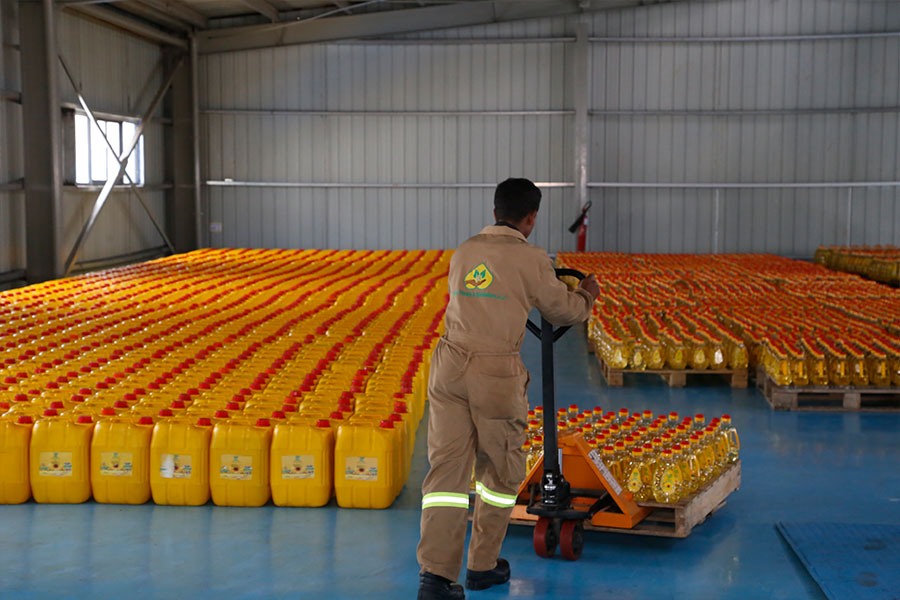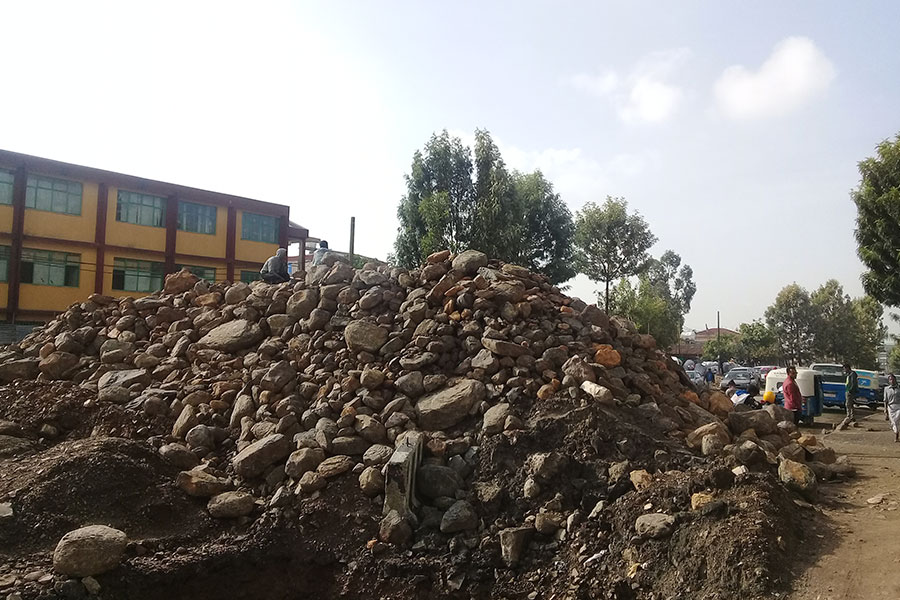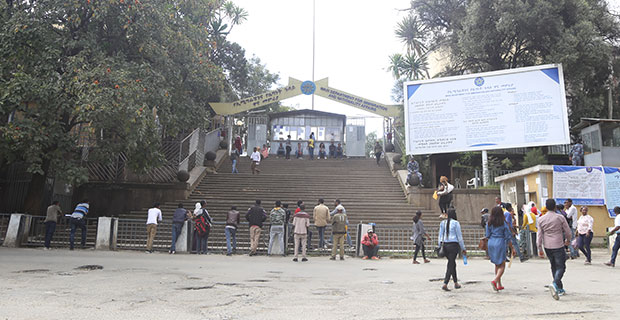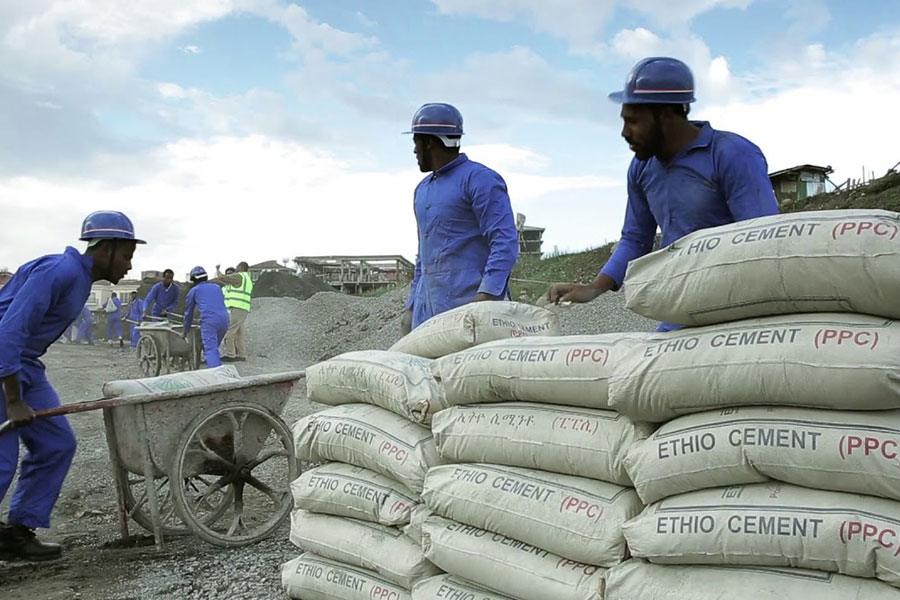
Fortune News | Nov 06,2021
Jun 12 , 2021
By HAWI DADHI
Petroleum companies have introduced new payment modalities on hundreds of gas retailers, which are now required to deposit a guarantee with an average value of five million Birr.
The demand comes following the Ethiopian Petroleum Supply Enterprise's (EPSE) decision in September 2019 to introduce an upfront payment scheme, citing difficulties in collecting rising arrears as the number of petroleum companies increased. Three months ago, the new payment modality took effect.
For years, transactions between petroleum companies and the Enterprise were carried out using a credit-based payment scheme where bills are settled post-sale. Gas retailers were required to pay 10pc of the value of their order up front and provide unconditional payment guarantees over the following three months for the outstanding payment.
The three-month period since the implementation is nearly over and petroleum companies have begun the transition into the second phase beginning June 8, 2021, paying 25pc upfront to the Enterprise.
In a year's time, the companies will be expected to cover the entire cost upfront.
Three alternatives of financing have been offered to the dealers, according to Ephrem Tesfaye, board member of the Petroleum Dealers' Association.
Dealers can provide a lump sum guarantee worth five million Birr, which varies depending on the size of the stations. They can be allowed to reach a threshold of a specific amount in two years, paying progressive instalments, while the companies can deduct an amount from the dealer's margins until a threshold is reached. Petroleum companies have a profit margin of less than three cents from a litre, a source of disgruntlement for many years. Gas stations owners have long pleaded with the authorities to allow them to increase the margins and, once again, they have voiced their displeasure in light of the new scheme being proposed by petroleum companies.
Dealers have no means of financial support, unlike the companies whose costs are being covered by the government, Ephrem said.
Authorities at the federal government have pledged that the cost incurred by oil companies during the implementation of the new modality would be compensated for. A slight price adjustment was made on retail prices of benzene (by four cents) and diesel (14 cents) a litre, three months ago.
However, the petroleum companies pleaded for a high margin, claiming that the increase was insufficient. The authorities conceded and price adjustments to be deducted from the petroleum reserve fund were granted.
Initially, the authorities had sought for consumers to shoulder the adjusted prices proposed by the Enterprise. Drivers would have seen a series of increases, including 13.74 cents on benzene, 1.68 cents on diesel, 13.71 cents on heavy diesel, 12.34 cents on light diesel, and 26.61 cents on jet fuel. Costs were, however, decided to be shouldered by the government for the following three months.
"The government spends up to two million Birr a day to cover this compensation," said Tadesse Hailemariam, CEO of EPSE. "We do this so that the public isn't burdened by the costs." The Enterprise supplies 2.3 million litres of benzene and 8.5 million litres of diesel a day on average.
Recently, an addendum for cash guarantee deposits was sent to gas stations owners and dealers under TOTAL Ethiopia, indicating that the guarantees collected would be kept in a separate account, 'Cash Guarantee Account', and the company supplies credit up to the limit of the deposited amount.
About 150 gas stations under TOTAL Ethiopia would have to comply if an agreement is reached, shelling out an estimated 750 million Br.
"If this is going to happen, we want our margins to be raised to one Birr [per litre]," said Ephrem.
According to Ahmed Tusa, head of the Petroleum & Petroleum Products Supply and Distribution Regulatory Authority under the Ministry of Trade & Industry, there have not yet been any formal complaints about the matter registered, but seeing as how the price was adjusted just a few months back, it is highly unlikely the margin will be revised again.
"It'll be reviewed in the future," he said.
Managers at TOTAL Ethiopia were not available for comment, despite repeated attempts from Fortune.
PUBLISHED ON
Jun 12,2021 [ VOL
22 , NO
1102]

Fortune News | Nov 06,2021

Fortune News | Jul 08,2023

Radar | Mar 26,2022

Fortune News | Aug 17,2019

Commentaries | Jun 17,2023

Commentaries | Feb 09,2019

Radar | Jan 16,2021

Fortune News | Oct 01,2022

Fortune News | Jul 10,2020

Radar | Mar 19,2022

Dec 22 , 2024 . By TIZITA SHEWAFERAW
Charged with transforming colossal state-owned enterprises into modern and competitiv...

Aug 18 , 2024 . By AKSAH ITALO
Although predictable Yonas Zerihun's job in the ride-hailing service is not immune to...

Jul 28 , 2024 . By TIZITA SHEWAFERAW
Unhabitual, perhaps too many, Samuel Gebreyohannes, 38, used to occasionally enjoy a couple of beers at breakfast. However, he recently swit...

Jul 13 , 2024 . By AKSAH ITALO
Investors who rely on tractors, trucks, and field vehicles for commuting, transporting commodities, and f...

Jun 28 , 2025
Meseret Damtie, the assertive auditor general, has never been shy about naming names...

Jun 21 , 2025
A well-worn adage says, “Budget is not destiny, but it is direction.” Examining t...

Jun 14 , 2025
Yet again, the Horn of Africa is bracing for trouble. A region already frayed by wars...

Jun 7 , 2025
Few promises shine brighter in Addis Abeba than the pledge of a roof for every family...